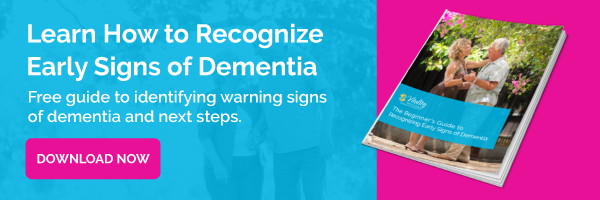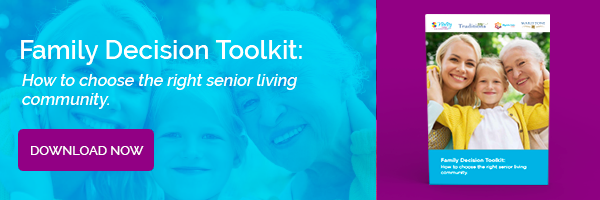Storytelling is an age-old tradition around the world. It can also be a form of therapy for people who have dementia. There are several different types of storytelling and reminiscing, and they all provide similar benefits.
Keeps Families Connected
The benefits of storytelling extend not only to people with dementia but to caregivers and care communities, too. When people gather to create or enjoy the stories of someone’s life, they’re bonding in ways that create lasting friendships.
Eases the Transition to a New Home
Stories can be assembled on a tablet, complete with music, photos, and videos. Arriving in a new community with their story ready to go can help seniors make new friends. Other residents come to know them and caregivers are able to provide better care when they have that insight and history.
Builds Connections between Caregivers and Families
One important aspect of senior living is for families to get to know caregivers. Bonding over your loved one’s life story can help build those bridges in a fun, pleasant way.
Helps Caregivers Feel Empathy
When you know someone’s story, you naturally develop empathy for them. In a caregiving environment, this is critical.
Helps Break Down Negative Stereotypes
Negative stereotypes about older adults, especially those with dementia, may stand in the way of a senior receiving the best possible care. Storytelling can change attitudes by revealing an older adult’s personality beyond the disease. It can also help paint a picture of the senior’s life story for those who didn’t know them before the diagnosis.
The first signs of dementia are often subtle. Learn what to watch for in our free guide.
One interesting study observed the effects of using a specialized form of creative storytelling with medical students. The research project showed a significant improvement in overall attitude and comfort occurs when health care professionals use this type of storytelling.
Improves Care
Caregivers can use memories to soothe an agitated person who has dementia. Knowing that someone grew up on a farm, for example, can be very helpful during stressful moments. When signs of agitation or aggression appear, a caregiver can present images of farm life or talk about caring for farm animals. Sometimes familiar images and language can have a calming effect on people with dementia.
Builds Trust
Caregivers in senior living communities are no stranger to the benefits of storytelling and reminiscing. They know these meaningful interactions are important for the well-being of people with dementia.
When caregivers know about the backgrounds, culture, tastes, and hobbies that make someone unique, they have more of the tools they need to develop meaningful interaction. This helps them build trust with the residents in their communities.
You see, dementia often creates confusion and mistrust because it causes adults who live with it to have difficulty remembering faces and events. Hearing familiar songs or hearing someone talk about events they recognize from their past builds trust. “This person knows me” is a good feeling to have.
Decreases Depression
When people with dementia connect with others in meaningful ways, they’re less likely to suffer from depression. Part of the reason for this is that they are able to express both social communication and basic needs communication.
Recap: Storytelling, Your Loved One, and You
Stories help shed light on who people are and what their lives were like before dementia. For older adults who can’t tell their own stories, family members can help bridge this gap.
One of the most rewarding benefits of storytelling for caregivers is the chance to connect on a deeper level over topics the senior may still find easy and comforting.
Vitality Senior Living Dementia Guide
For families who are concerned a senior loved one might have dementia, our ebook may be helpful – full of expert advice and useful topics for caregivers like you.
Download it at no cost today to learn more!




